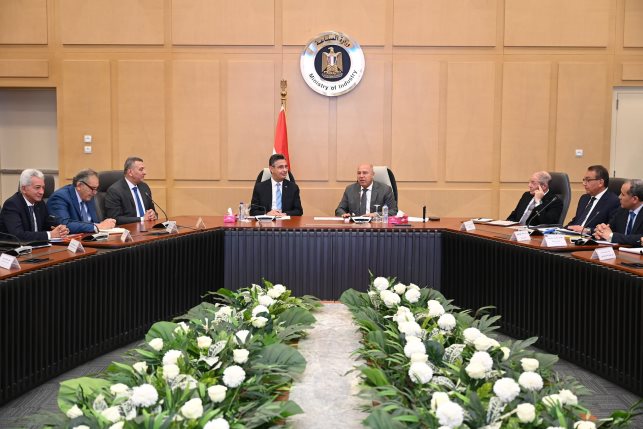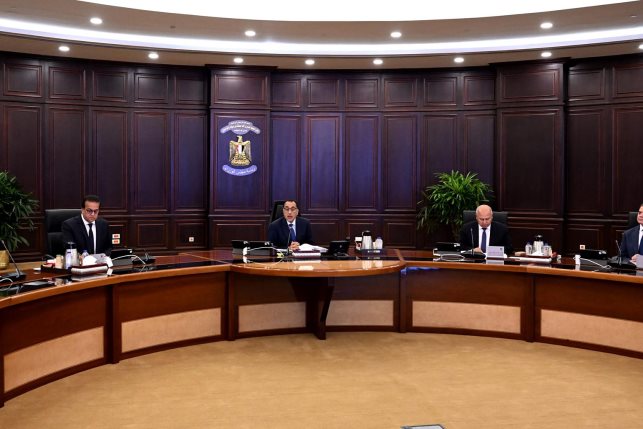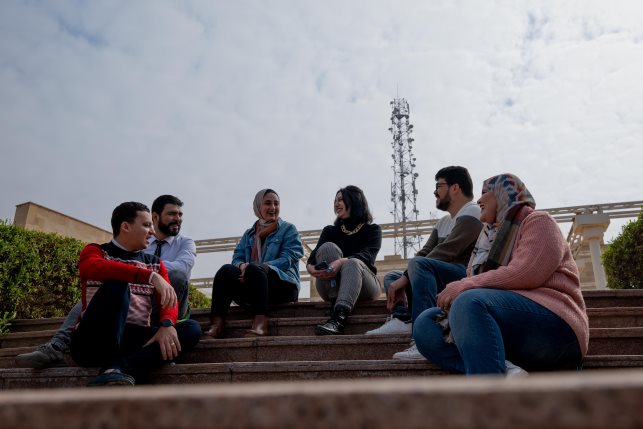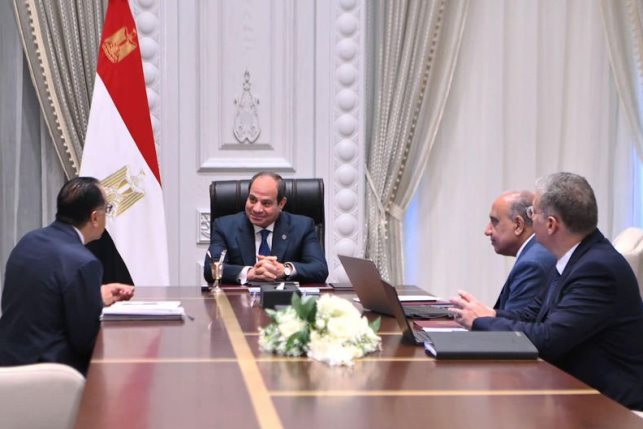Questions of the Hour: President of Select International Shady Samir
Shady Samir of Select International talks tech, water desalination, and opportunities for startups in our latest interview
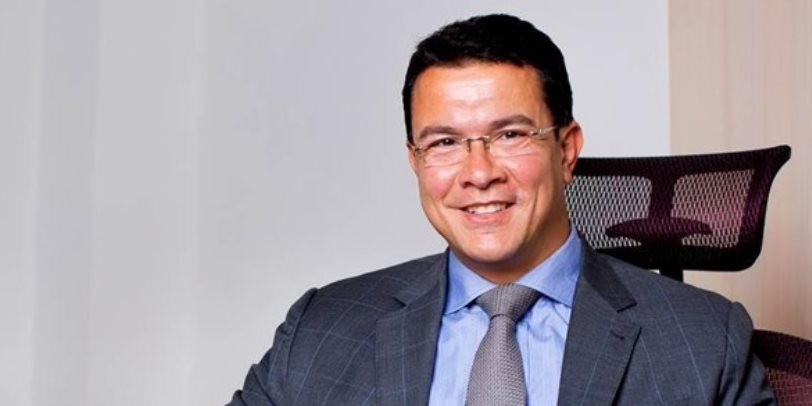
The past eight months have changed the world as we know it, with connectivity becoming a primary feature that we depend on almost every hour of the day; and with more and more reliance on digital platforms and services, comes the challenge of meeting the increased demand.
Yet, buoyed by a solid set of policies rolled out by the government to support infrastructure and maintain sustainable revenue growth amid the global pandemic, Enterprise Sigma Technology has managed to serve entities that eventually were either not affected or were affected positively by the situation.
With CEO Shady Samir, president of Enterprise Sigma Technology’s mother company Select International, at the helm, Egypt has been able to navigate the hurdles to more efficient connectivity, accessible platforms and integrated business tech solutions.
In an exclusive interview with Business Today Egypt, Samir reveals how Sigma has helped bring into Egypt an impressive 40 percent of the tech industry revenues in the region, and unpacks Select International’s many contributions to the national economy.
The Covid-19 crisis has affected almost every industry worldwide. How, in your opinion, has Egypt’s economy been impacted by the pandemic?
Covid-19 caused a change in the market worldwide; the fact that the virus emerged from China, which is largely a monopoly over about 1/3 of the supply chain globally, definitely had a major impact on all industries. Regardless of the size of its contribution, Egypt is part of the international economy, so the impact on Egypt was part of the impact that occurred internationally.
Sectors such as tourism were instantly affected, coming to a complete halt due to the precautions and restrictions that the government enforced to contain the spread of the virus. The government’s first priority is the safety of citizens. After containing the situation, the government worked to accommodate the situation gradually, creating the best possible balance between protecting citizen health safety and citizen financial safety.
During Covid-19, the economy went through two main challenges; the first was sustaining the business stability levels that the government has reached within the economic reforming process; the second was after reopening the businesses and going back to normal after the lockdown and getting back on track along with maintaining the economic development plans between the government EDP and the workforce health prerequisites during the spread of this pandemic.
Our government was very dynamic and very aware of what the people were going through. It did not choose to remain rigid; on the contrary, they put people first. Although Egypt by the end of this year will not have a very high GDP, — thankfully— it will be one of the countries that managed to maintain sustainable revenue growth.
Based on your vast expertise in the field, would you say that the IT and technology sector benefited from the lockdown?
The fact that people were staying at home definitely caused an increase in demand on the internet and data usage, which forced the entire sector to boost the capacity of its infrastructure.
The telecommunications sector was one of the sectors that were not affected by Covid-19.
On the contrary, their revenues increased. In fact, the plan that the companies had prepared to use in 2020 [in terms of] capacity was consumed in the first six months due to increased usage.
For Enterprise Sigma Technology, which specializes in consultancy, solution development, business analysis, data manipulation, data management, or predictive analysis, all the technology sectors of our company were presented with a huge opportunity to serve entities that were not affected or were affected positively by the situation in the world. We supplied everywhere… Egypt was one of the countries where we managed to deliver successfully.
Even though Egypt only represents about 19 percent to 22 percent of the technology sector, in the first six month of Covid-19’s spread, it represented 40 percent of the sector’s revenues in the region.
Is Egypt currently producing IT solutions that can compete on a global level?
We have become more demanding when it comes to technology, education, work, etc... Everything is online now.
During the past seven years, Egypt was already migrating its governmental services to digital platforms, with a plan to connect the network of 350 governmental organizations. This plan will be complete within the next 36 months; and the size of governmental investments earmarked to support the technology infrastructure is huge.
The initiative is no longer cosmetic; it has become mandatory to develop. The goal is that in the next five years, Egypt’s technology infrastructure will at least compete with its peers.
Besides Covid-19, the next big topic must be water. Tell us about Enterprise Sigma Technology’s plans in the field of water desalination.
We entered the water desalination sector through the technology door, making use of water through technology. After obtaining authorizations and signing protocols with companies in Germany and Spain, now we use 40feet containers that purify and disinfect water for human consumption.
These containers have many benefits, especially in small villages where you do not need to construct an entire station to serve them. Now, we can just install one of the containers there. This also helps the government save on construction of water purification stations, civil work and hydromechanics.
The next step was to address needs in cities and governorates, such as Al Sharkeya, Manfalot, Ismailia, Port Said, Domyat, constructing water purification stations in some of them. We signed contracts in this field for mega projects as part of the National Water Project Plan.
How will the National Water Project Plan impact Egypt’s water resources?
Egypt has been suffering from water shortage for a long time now due to huge water waste. There was no water rationing in any of its sectors, so the government is now applying huge plans to conserve water; and the entire water infrastructure is being revamped. All the pipes will be changed and canals will be lined to reduce evaporation and seepage loss of irrigation water. The plan also includes urtlafirtlation projects, projects to recycle agricultural water to be used for irrigation, sanitary sewer projects, and treating wastewater to be used for irrigation.
The government is adopting modern irrigation methods, utilizing technology in greenhouses and building desalination stations in coastal cities to be used for drinking water.
There are investments that surpass LE 40 billion per year in just the water field and its infrastructure. When the infrastructure is installed in new cities, it generates new agriculture opportunities. The government is launching its 1.5 million-acre project, which will generate countless job opportunities.
Speaking of opportunities, how do you assess opportunities for startups and SMEs in Egypt?
The base of any startup is the idea behind it, not its capital. Google did not have any capital. In the technology field, with just an idea you can gain money, because you do not need upfront investment; you sell and then buy, not the other way around. You do not need to buy, stock and then sell. That is how startups begin.
Egypt is one of the strongest countries when it comes to the number of startups. The point of strength for startups is that when major changes happen in the market, it is always hard for big entities to cope with this dynamic alteration.
Startups, however, have fascinating abilities to accommodate. They can maintain themselves for a whole year with just one contract, but major companies, without a high number of contracts annually, will eventually close down due to operational expenses.
Startups have low overheads and opex, so they have a large profit margin that allows them to generate new ideas constantly until they can grow into small to medium enterprises. The government also provides many financial opportunities; 5 percent for all enterprises that make less than LE 50 million annually, and 8 percent for all enterprises that make annual profits of less than LE 100 million.
These opportunities were only presented during the last seven years. Before that, you had to be a big company to approach a bank to receive a loan. Now, banks approach small and medium enterprises to offer them the loans. Also, the Central Bank fixed a quota on its affiliated banks regarding SMEs funding.
What advice would you give Egyptian and Arab youth so they can find their own path to success?
Worldwide, business depends on ethics, young people can achieve success by maintaining business ethics, respecting their word, and ethical work standards.
At the end of the day, we are people dealing with people, it doesn’t matter what is written on your business card. If they manage to gain the trust and respect of their clients, young people will sustain a good business relationship with them.
My advice is: Build a base with trust and quality, and then the opportunities will come. Keep working on yourselves, keep developing your team. There is no such thing as luck; luck is simply the point where readiness and opportunities meet.
Tell us about Enterprise Select International’s significant expertise and valuable international partnerships in the automotive industry.
We launched a new company called “Great Automotive”. The company built car showrooms and service centers, and obtained permits for electric buses imported from China and Turkey.
The first shipment has arrived. The direction in the next phase when it comes to public mass transportation is toward electricity not fuel, to rationalize energy consumption. The government is heading toward reducing the dependency on hydrocarbons and natural energy resources, and depending more on renewable energy sources.
What is Select International’s plan for expansion?
Regarding geographical expansion, just before the spread of coronavirus, we grew our footprint in Africa, French-speaking African countries in particular. But the Coronavirus broke out and the travel ban was enforced. For the time being, we are freezing our expansion until things are more settled and we can resume traveling.
No one can assess the size of the recovery plan from the Coronavirus situation, because no one knows which turn events will take yet. For vertical expansion, whenever we have the opportunity to grow more solid in our country we take it. We are in sustaining mode, I highly doubt it is required of anyone to make a profit under the current circumstances. We should be preparing for the near term, so we hit the ground running when things are back to normal.


